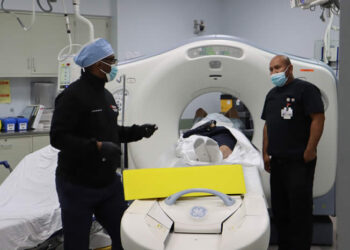When it comes to feeding our canine companions, misinformation abounds. With the rise of internet experts and old wives’ tales, it’s easy to get caught in the web of myths surrounding what is truly beneficial for our dogs’ diet. This blog post aims to shed light on the most common misconceptions about canine nutrition, helping you make informed decisions to ensure your furry friend stays healthy and happy. Read on to debunk these myths and learn about proper dietary practices for dogs.
Table of Contents
Fruits and Vegetables
Though meat forms a significant part of a dog’s diet, fruits and vegetables are also important for providing essential vitamins, minerals, and fiber. However, not all fruits and veggies are safe for dogs. For instance, onions, garlic, and grapes are toxic to dogs, while others like carrots, apples (without seeds), and green beans can be quite beneficial. As pet owners, it’s crucial to be informed about which fruits are suitable for dogs. For example, while some may wonder about citrus fruits, it’s helpful to know can dogs eat oranges safely in moderation, and whether they can offer vitamin C to your pet’s diet.
Bones and Safety
Bones have traditionally been seen as an ideal treat for dogs. But not all bones are safe; cooked bones can splinter and cause internal damage or become a choking hazard. Even raw bones can pose risks like broken teeth and blockages. Always supervise your dog with bones and consult with your vet for safer chew options.
Canines, not Carnivores
Contrary to popular belief, dogs are not strict carnivores like their wolf ancestors. They are actually omnivores, benefiting from a well-rounded diet that includes proteins, carbohydrates, fats, vitamins, and minerals. Purely meat-based diets can lead to deficiencies and health issues, so a balance is key.
Fatty Food
Fats often get a bad rap, but they’re actually a crucial part of a dog’s diet, providing energy and helping to absorb fat-soluble vitamins. The key is to provide the right kind of fat in moderate amounts, as excessive fat can lead to obesity and related health issues.
Grain-Free Diets
While grain-free diets have become trendy, there is no scientific evidence suggesting that they are inherently healthier for dogs than diets containing grains. In fact, some dogs may suffer from grain allergies or intolerances, but these are the exception rather than the rule. Quality grains like brown rice or oatmeal can be a healthy part of a dog’s diet.
Changing Things Up
Dogs’ nutritional needs change over time due to factors such as age, weight, and health status. Sticking to one type of food throughout a dog’s life may overlook these changing needs. A balanced diet, possibly involving different types of food through different life stages, is recommended for long-term health.
Dogs and Human Food
While sharing your meal with your pooch might seem like a caring gesture, many common human foods can be harmful to dogs. Foods such as chocolate, caffeine, alcohol, and xylitol (a sweetener found in many sugar-free products) can be toxic to dogs. It’s best to stick with food specifically formulated for canine nutrition.
Dog Food Fillers
The term ‘fillers’ is often used to dismiss ingredients that don’t seem to add nutritional value to dog food, such as corn and soy. However, when used in the right proportions, what some consider ‘fillers’ can provide useful nutrients and help in maintaining a balanced diet, as long as they are not used to substitute more beneficial ingredients.
The Role of Supplements
Supplementation can be beneficial for some dogs, especially those with specific dietary deficiencies or health conditions. For example, glucosamine and chondroitin are popular supplements for joint health, while omega fatty acids can support skin and coat quality. Always consult with a veterinarian before introducing new supplements to your dog’s diet.
Raw Diets Vs Cooked Foods
The raw food movement for pets has gained traction, with advocates claiming raw diets offer nutritional benefits similar to what dogs would eat in the wild. However, raw diets come with risks, such as the potential for bacterial contamination and nutritional imbalances. Cooked diets can be just as nutritious without the associated risks of raw food.
Hydration is Key
Water is an essential component of canine nutrition that is often overlooked. Ensuring your dog has constant access to clean, fresh water is as crucial as providing the right food. Adequate hydration aids in digestion, regulates body temperature, and helps maintain overall health. Encouraging your dog to drink regularly, particularly after exercise and in hot weather, is important.
High-Protein Diets
High protein levels have been erroneously linked to kidney failure in dogs. However, healthy dogs with normal kidney function can typically handle high amounts of protein. Kidney issues are often due to underlying health problems and are not directly caused by dietary protein intake.
Additional Insights
Understanding your dog’s unique dietary preferences and tolerances can also play a significant role in their nutrition. Just like humans, dogs can have their own likes and dislikes, along with individual sensitivities and allergic reactions to certain foods. Paying close attention to how your dog reacts to different types of food can help tailor their diet to their specific needs.
Conclusion
Understanding what truly constitutes a healthy diet for your dog can be challenging, given the prevalence of misconceptions and myths. By educating yourself with the right information and consulting with a vet, you can craft a balanced and nutritious diet that suits your dog’s unique needs. Remember, every dog is different, and what works for one may not work for another. Here’s to the health and happiness of your four-legged friend!


 Home
Home









